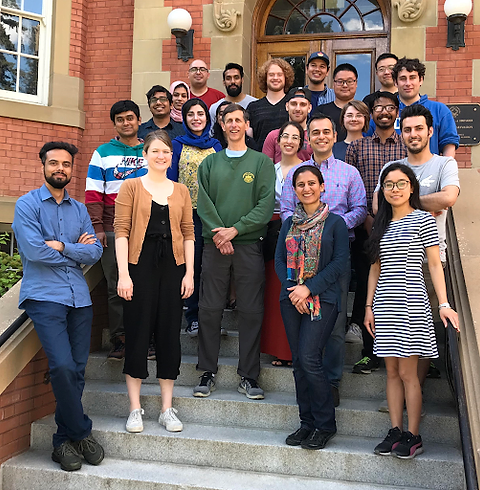


I’m a M.Sc. student in the Computing Science program at the University of Alberta, working under the supervision of Prof. Russell Greiner, and part of the Alberta Machine Intelligence Institute (AMII) and the Computational Psychiatry Group.
My current research focuses on how to use machine learning techniques to solve medical problems, especially in psychiatry (e.g. diagnosis of obsessive-compulsive disorder, schizophrenia, etc.).
Previous Work:
OCD is a psychiatric disorder that is characterized by intrusive recurrent thoughts (obsessions) and repetitive behaviours (compulsions). Due to the 1-2% worldwide prevalence of OCD, many studies have tried to develop reliable clinical support systems that can distinguish between OCD patients vs healthy controls. The overlapping symptom cluster of different mental disorders makes the classification difficult. Moreover, there are no precise and reliable biomarkers for psychiatric disorders. Recently, I have designed a machine learning process that can learn a model for diagnosing obsessive-compulsive disorder (OCD), from multi-modal neuroimaging measurements.
Current Work:
Multiple clinical trials have shown the efficacy of transcranial direct current stimulation (tDCS) in treating patients with various psychiatric disorders such as antipsychotic-resistant schizophrenia, OCD and depression. However, the clinical outcome of the treatment is very heterogeneous among patients. With a data set of randomized controlled trial and pre-treatment neuroimaging scans (MRI, fMRI, DTI), we plan to learn a model that predicts individualized tDCS treatment response. Treatment response will be measured by difference or percent difference in pre and post-tDCS scores of symptom severity based on clinical rating scales such as auditory hallucination rating scale (AHRS). We believe such a model will be very useful in clinical decision making of selecting the candidate patients for brain stimulation therapy.



Transcranial Direct Current Stimulation (tDCS)
Accepted Journal Publications
-
Sunil Vasu Kalmady, Animesh Kumar Paul, Russell Greiner, Rimjhim Agrawal, Anekal C Amaresha, Venkataram Shivakumar, Janardhanan C. Narayanaswamy, Andrew J Greenshaw, Serdar M Dursun, Ganesan Venkatasubramanian (2020) Extending Schizophrenia diagnostic model to predict the extent of Schizotypal Personality Disorder in first degree relatives. Nature npj Schizophr.
Under-review Journal Publications
-
Animesh Kumar Paul*, Anushree Bose*, Sunil Vasu Kalmady, Venkataram Shivakumar, Vanteemar S. Sreeraj, Rujuta Parlikar, Janardhanan C. Narayanaswamy, Serdar M Dursun, Andrew J. Greenshaw, Russell Greiner, Ganesan Venkatasubramanian (2020) Superior temporal gyrus functional connectivity predicts response to transcranial direct current stimulation in Schizophrenia. Brain Stimulation (Impact Factor: 6.565).
-
Sunil Vasu Kalmady*, Animesh Kumar Paul*, Janardhanan C. Narayanaswamy, Rimjhim Agrawal, Venkataram Shivakumar, Andrew J Greenshaw, Serdar M Dursun, Russell Greiner, Ganesan Venkatasubramanian, Y.C. Janardhan Reddy (18th Feb 2020) Prediction of Obsessive Compulsive Disorder: Importance of neurobiology-aided feature design and cross-diagnosis transfer learning.
*These authors contributed equally to this work.